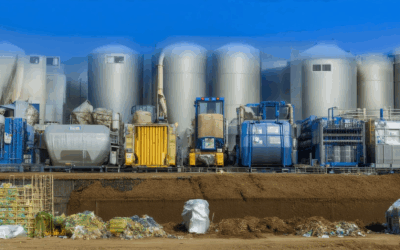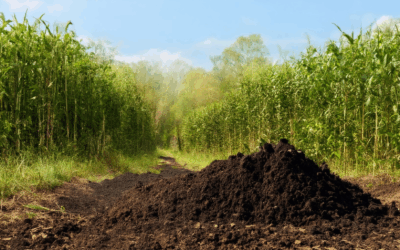Eco-friendly waste management has become a cornerstone of sustainable living, offering a practical solution to reduce our environmental footprint. As global awareness of environmental issues grows, more individuals and businesses are seeking effective strategies to minimize waste generation and promote responsible disposal methods. This blog delves into actionable approaches, best practices, and real-world examples that highlight how we can all contribute to a cleaner, greener world. From reducing household waste to fostering community initiatives, the insights shared here aim to empower readers with knowledge and inspire them to adopt eco-friendly habits that make a difference. By exploring innovative solutions and understanding the broader implications of waste management, this article serves as a comprehensive guide to help you embrace sustainable living and play your part in preserving the planet for future generations.
Key Takeaways
– Reduce Landfill Overload: Eco-friendly waste management helps decrease landfill dependency through recycling and composting.
– Protect Ecosystems: Effective practices prevent pollution, safeguarding water systems and supporting biodiversity.
– Conserve Resources: Recycling and reuse lower energy consumption and emissions, promoting sustainable development.
– Enhance Community Health: Proper waste management reduces disease risks and improves overall well-being.
– Fight Climate Change: Reducing waste lowers methane emissions, contributing to global efforts against climate change.
– Set a Positive Example: Adopting eco-friendly habits inspires others and fosters a culture of sustainability.

Effective Eco-Friendly Waste Management Strategies
Implementing eco-friendly waste management strategies requires a combination of awareness, action, and innovation. Here’s a step-by-step guide to help you get started:
1. Reduce Waste Generation
- Minimize Consumption: Encourage a culture of conservation by thinking twice before discarding items. Use reusable products and participate in bulk purchasing programs.
- Support Recycling Programs: Work with local governments or businesses to establish robust recycling initiatives. Ensure that recyclables are easily accessible and clearly labeled.
- Composting: Start a composting program at home or community level. Provide residents with composting kits and host regular workshops to educate them on proper techniques.
2. Promote Recycling
- Education is Key: Organize recycling education programs to teach residents what can be recycled and how. Include visual aids like signs and brochures to make it easy to understand.
- Separate Correctly: Ensure that recycling bins are clearly marked and positioned. Offer incentives, like discounts or rewards, for proper segregation of waste.
- Community Drives: Host periodic recycling drives where residents can bring unwanted items to designated collection points. Partner with local businesses to provide drop-off locations.
3. Implement Composting Programs
- Home and Community Composting: Distribute composting bins to households and set up community composting sites. These sites can then be used by local gardens or farms to enrich soil.
- Waste-to-Energy Solutions: Explore partnerships with local energy companies to convert organic waste into biogas through composting or anaerobic digestion. This not only reduces landfill waste but also generates renewable energy.
- Public Awareness Campaigns: Launch campaigns highlighting the benefits of composting, such as reducing methane emissions and improving soil health. Use social media, flyers, and local radio to spread the message.
4. Develop Waste Reduction Campaigns
- Challenge Residents: Create campaigns like “Waste-Free Wednesday” to encourage residents to reflect on their waste habits and reduce disposables.
- Engage Businesses: Work with local businesses to reduce packaging waste. Offer incentives for companies that adopt eco-friendly packaging practices.
- Utilize Technology: Invest in smart waste management systems that track and analyze waste patterns. Use data to identify areas for improvement and adjust strategies accordingly.
5. Adopt Zero-Waste Policies
- Set Clear Goals: Establish measurable targets for waste reduction, such as achieving a 30% reduction in landfill waste within a specific timeframe.
- Engage Stakeholders: Collaborate with local governments, businesses, and community groups to develop integrated waste management plans. Include public consultations to gather input and ensure buy-in.
- Encourage Circular Economy Practices: Promote the idea of reusing and repurposing materials. Host workshops or fairs showcasing local artisans who create products from recycled materials.
6. Monitor and Evaluate
- Track Progress: Regularly monitor the effectiveness of your waste management strategies. Measure metrics like waste diversion rates, reductions in landfill volume, and improvements in air quality.
- Collect Feedback: Engage with residents and stakeholders to gather feedback on what’s working and what needs improvement. Use this information to refine your approach and ensure continuous progress.
- Celebrate Successes: Recognize and celebrate milestones achieved through your efforts. Share success stories via newsletters, social media, and local press to inspire others.
By implementing these strategies, you can significantly reduce your environmental footprint and create a more sustainable future for generations to come. Remember, every small effort contributes to a bigger change!
For more resources and tools to help you get started, visit our waste management page .
Effective Eco-Friendly Waste Management Strategies
Implementing eco-friendly waste management strategies requires a combination of awareness, action, and innovation. Here’s a step-by-step guide to help you get started:
1. Reduce Waste Generation
- Minimize Consumption: Encourage a culture of conservation by thinking twice before discarding items. Use reusable products and participate in bulk purchasing programs.
- Support Recycling Programs: Work with local governments or businesses to establish robust recycling initiatives. Ensure that recyclables are easily accessible and clearly labeled.
- Composting: Start a composting program at home or community level. Provide residents with composting kits and host regular workshops to educate them on proper techniques.
2. Promote Recycling
- Education is Key: Organize recycling education programs to teach residents what can be recycled and how. Include visual aids like signs and brochures to make it easy to understand.
- Separate Correctly: Ensure that recycling bins are clearly marked and positioned. Offer incentives, like discounts or rewards, for proper segregation of waste.
- Community Drives: Host periodic recycling drives where residents can bring unwanted items to designated collection points. Partner with local businesses to provide drop-off locations.
3. Implement Composting Programs
- Home and Community Composting: Distribute composting bins to households and set up community composting sites. These sites can then be used by local gardens or farms to enrich soil.
- Waste-to-Energy Solutions: Explore partnerships with local energy companies to convert organic waste into biogas through composting or anaerobic digestion. This not only reduces landfill waste but also generates renewable energy.
- Public Awareness Campaigns: Launch campaigns highlighting the benefits of composting, such as reducing methane emissions and improving soil health. Use social media, flyers, and local radio to spread the message.
4. Develop Waste Reduction Campaigns
- Challenge Residents: Create campaigns like “Waste-Free Wednesday” to encourage residents to reflect on their waste habits and reduce disposables.
- Engage Businesses: Work with local businesses to reduce packaging waste. Offer incentives for companies that adopt eco-friendly packaging practices.
- Utilize Technology: Invest in smart waste management systems that track and analyze waste patterns. Use data to identify areas for improvement and adjust strategies accordingly.
5. Adopt Zero-Waste Policies
- Set Clear Goals: Establish measurable targets for waste reduction, such as achieving a 30% reduction in landfill waste within a specific timeframe.
- Engage Stakeholders: Collaborate with local governments, businesses, and community groups to develop integrated waste management plans. Include public consultations to gather input and ensure buy-in.
- Encourage Circular Economy Practices: Promote the idea of reusing and repurposing materials. Host workshops or fairs showcasing local artisans who create products from recycled materials.
6. Monitor and Evaluate
- Track Progress: Regularly monitor the effectiveness of your waste management strategies. Measure metrics like waste diversion rates, reductions in landfill volume, and improvements in air quality.
- Collect Feedback: Engage with residents and stakeholders to gather feedback on what’s working and what needs improvement. Use this information to refine your approach and ensure continuous progress.
- Celebrate Successes: Recognize and celebrate milestones achieved through your efforts. Share success stories via newsletters, social media, and local press to inspire others.
By implementing these strategies, you can significantly reduce your environmental footprint and create a more sustainable future for generations to come. Remember, every small effort contributes to a bigger change!
For more resources and tools to help you get started, visit our waste management page .

Best Practices for Implementing Eco-Friendly Waste Management Systems
Eco-friendly waste management is essential for reducing environmental impact and promoting sustainability. Here are proven strategies to create an effective waste management system:
- Reduce Waste Generation: Minimize waste at its source by adopting practices like reducing packaging usage, minimizing single-use items, and promoting bulk purchasing.
- Implement Single-Stream Recycling: Simplify recycling processes by combining all recyclable materials into a single bin, making it easier for residents to participate.
- Compost Organic Waste: Separate organic waste into a dedicated bin to create nutrient-rich compost, reducing landfill dependency and enhancing soil fertility.
- Invest in Sustainable Infrastructure: Develop waste management facilities that use renewable energy and promote circular economy principles, such as waste-to-energy plants or material recovery facilities.
- Engage Communities: Educate residents through workshops, campaigns, and digital platforms to encourage participation in eco-friendly practices.
By integrating these strategies, communities can significantly reduce waste, minimize environmental harm, and promote a culture of sustainability. For more insights and tools to enhance your waste management efforts, explore our guide to sustainable living .

Why Adopt Eco-Friendly Waste Management Practices?
Eco-friendly waste management is essential for preserving our planet and ensuring a sustainable future. Here are the key reasons to adopt these practices:
- Reduce Landfill Overload: Conventional waste disposal often ends up in landfills, which can overflow and release harmful chemicals into the environment. Eco-friendly methods like recycling and composting help minimize landfill dependency.
- Protect Ecosystems: Landfills can leak pollutants into water systems and soil, endangering wildlife and human health. Effective waste management prevents contamination and supports local biodiversity.
- Conserve Resources: Recycling and reusing materials reduce the demand for raw resources, lowering energy consumption and associated emissions. This promotes a circular economy and sustainable development.
- Enhance Community Health: Proper waste management prevents the spread of diseases, especially in areas lacking adequate infrastructure. Clean practices contribute to overall community well-being.
- Fight Climate Change: Landfills are significant sources of methane, a potent greenhouse gas. Reducing waste decreases methane emissions, aiding efforts to combat climate change.
- Set a Positive Example: Adopting eco-friendly habits inspires others to follow suit, fostering a culture of sustainability and encouraging collective responsibility.
By embracing sustainable waste management, we contribute to a healthier planet and a better future for generations to come. Explore innovative solutions and learn more about how you can make a difference at Pyrolysium , your trusted source for eco-technology insights and sustainable living tips.
Steps to Promote Eco-Friendly Waste Management
Eco-friendly waste management starts at home. Here’s how you can make a positive impact:
- Reduce Plastic Use : Opt for reusable items like cloth bags, water bottles, and food containers. This minimizes plastic consumption and reduces its impact on the environment.
- Recycle Properly : Ensure all recyclable materials are free of food residue and sorted correctly. Familiarize yourself with your local recycling guidelines to avoid contamination.
- Compost Kitchen Scraps : Turn organic waste into a resource by composting. Start an outdoor pile or use a worm bin for scraps like fruit peels, vegetable trimmings, and coffee grounds.
- Buy Sustainable Products : Choose products made from recycled materials or renewable resources. Support brands that use eco-friendly packaging to reduce waste.
- Spread Awareness : Share knowledge about eco-friendly practices with friends and family. Use social media or community events to educate others and encourage sustainable habits.
By taking these steps, you contribute to a cleaner planet and set a positive example for others. Remember, every small effort counts toward a bigger goal of protecting our environment.

Top Eco-Friendly Waste Management Tips for Everyday Life
Here are the top 10 eco-friendly waste management tips to help you live a more sustainable lifestyle:
- Recycle Responsibly : Separate recyclable materials like paper, glass, and metal from trash and dispose of them in designated recycling bins. Many cities offer incentives for recycling, so check local guidelines.
- Reduce Waste : Minimize unnecessary purchases by planning meals and shopping with intention. Compost kitchen scraps and unused food to create nutrient-rich soil.
- Compost at Home : Start a compost pile or worm farm to turn organic waste into valuable fertilizer for your garden.
- Reuse Items : Repurpose old jars, containers, and clothing into new household items or garden tools.
- Use Reusable Products : Opt for reusable water bottles, cloth bags, and eco-friendly cleaning supplies to reduce single-use waste.
- Choose Biodegradable Cleaning Supplies : Use natural, biodegradable detergents and make your own cleaning solutions with ingredients like vinegar and baking soda.
- Recycle Electronics Responsibly : Donate or recycle old electronics to prevent hazardous materials from ending up in landfills.
- Support Local Programs : Participate in community e-waste collection events or deposit schemes offered by local governments.
- Adopt a Plant-Based Diet : Reduce waste by choosing foods that produce less garbage and have a lower carbon footprint.
- Shop at Zero-Waste Stores : Visit stores that sell bulk goods and refillable containers to minimize packaging waste.
By incorporating these tips into your daily routine, you can significantly reduce your environmental impact and promote sustainable living. Remember, every small step contributes to a bigger change for the planet.




0 Comments